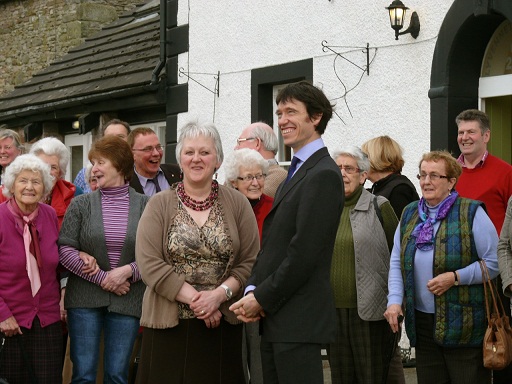In Praise of the Civil Service
A secret: politicians don’t know what they’re talking about. I don’t mean that we are all stupid, or lazy (I can sense my father’s arched eye-brows, as I make that claim). But I mean that it is impossible for politicians to know enough. The most successful ones, of course, are brilliant at concealing this: they assimilate quantities of data, remember impressive statistics, and sound convincing on debt and drought, on customs and crime, on Inner Asia and inner ear disease. But watch them at the despatch box, or on question time, replying confidently to a hundred unexpected queries, never saying they don’t know, and you must realise they are performing the impossible.
This is a problem. Because our best hope of making good decisions, or at least avoiding catastrophe, is to have people whose knowledge gives them the ability and confidence to challenge bad policies. Our track record is not good. The US banks continued to invest in credit-default swaps for years; the European Finance Ministers let Greece drift for decades. We invaded Iraq, and sent more and more troops into Afghanistan. Again and again, politicians failed to realise that despite the confident advice, optimistic predictions, and encouraging figures, everything was going very wrong.
Take Tony Blair on Iraq. He was bright, his speeches showed that he was well-briefed: full of obscure and precise statistics, confident about international law, clear about the global order. But everything he had learnt, everything he believed, everything he expected, was wrong. There were no weapons of mass destruction, there were not their terrorist links, he imagined. He underestimated the strength and nature of the Iraqi opposition, he missed the signs of civil war. International credibility was not – as he predicted – helped by invading Iraq: it was destroyed.
Now, of course, people said so at the time. And some were right for the right reasons, because they had an instinct for the temptations of power and the errors of politicians, and a few because they had a detailed first-hand knowledge of the complexity of Iraq. But it was easy for Blair to find apparently equally well-informed, thoughtful people who backed his view: to find any number of sophisticated arguments, and statistics, which suggested he was right. None of his senior serving Ambassadors or Generals formally challenged his decision in writing. Not one resigned. Instead, they set about justifying and implementing his policy.
The same errors, the same lack of challenge, exist everywhere. Look at Germany’s disastrous 100 Billion investment in solar energy (98 cents in every Euro was wasted, and the effect according to the standard model, would delay global warming by 23 minutes). Look at why steps were not taken earlier to protect Cumbria from Bovine TB; or the 38 Billion debt run up in the Ministry of Defence; or some of the more catastrophic investment decisions of the North-West development agency. Ultimately all this was the politicians’ fault; but in almost every case, they were taking expert advice, and they never had the knowledge, experience, or confidence to take a different path.
The solution to these problems is not to plug a bigger external hard-drive into a minister’s head. The solution lies with the civil service. In every area – agriculture, small business support, military procurement – we need to continue to promote officials who are well-informed, experienced, and imaginative. Some need to be sector experts, others need the originality to ask questions, which no normal person would ever ask, nor perhaps could ever answer. An agriculture official needs to ask what would be the thirty year impact on farming of improving ‘sites of special scientific interest,’ and what would happen if subsidies ceased to be paid. They need a grasp of Spanish animal movement data-bases, and an even clearer instinct of why we failed to predict the change in New Zealand’s powdered milk exports. They must understand the long-term significance of an edible hamburger that has just been grown in a laboratory, from a stem-cell. They need to have seen first-hand the dangerous unstoppable momentum of fashionable theories. They need to understand economics, and what economists don’t understand. And they need the courage to challenge treasury officials, and wealthy businessmen.
Perhaps the best contribution we can make to the future of British government is to support the right kind of civil service. It is not a project that fits an election cycle: you need to recruit people today, who may still be in the civil service in forty years’ time, you need to give young people the incentive to get out on the ground, the time to think, and the nimbleness, and courage to challenge conventional wisdom. You need the promotion criteria to ensure that those with the best policy judgement reach the top. You need to recognise when knowledgeable people have become rigid, or lost their desire or energy to fight. And you need to ensure that there is a culture of self-questioning. Politicians are not encyclopaedias, super-power memories, or saints. But they don’t need to be, if they learn how to listen to the right kind of civil servants – and just occasionally when it is clear the whole establishment is digging itself into a hole, to make that lonely decision, and change course.















